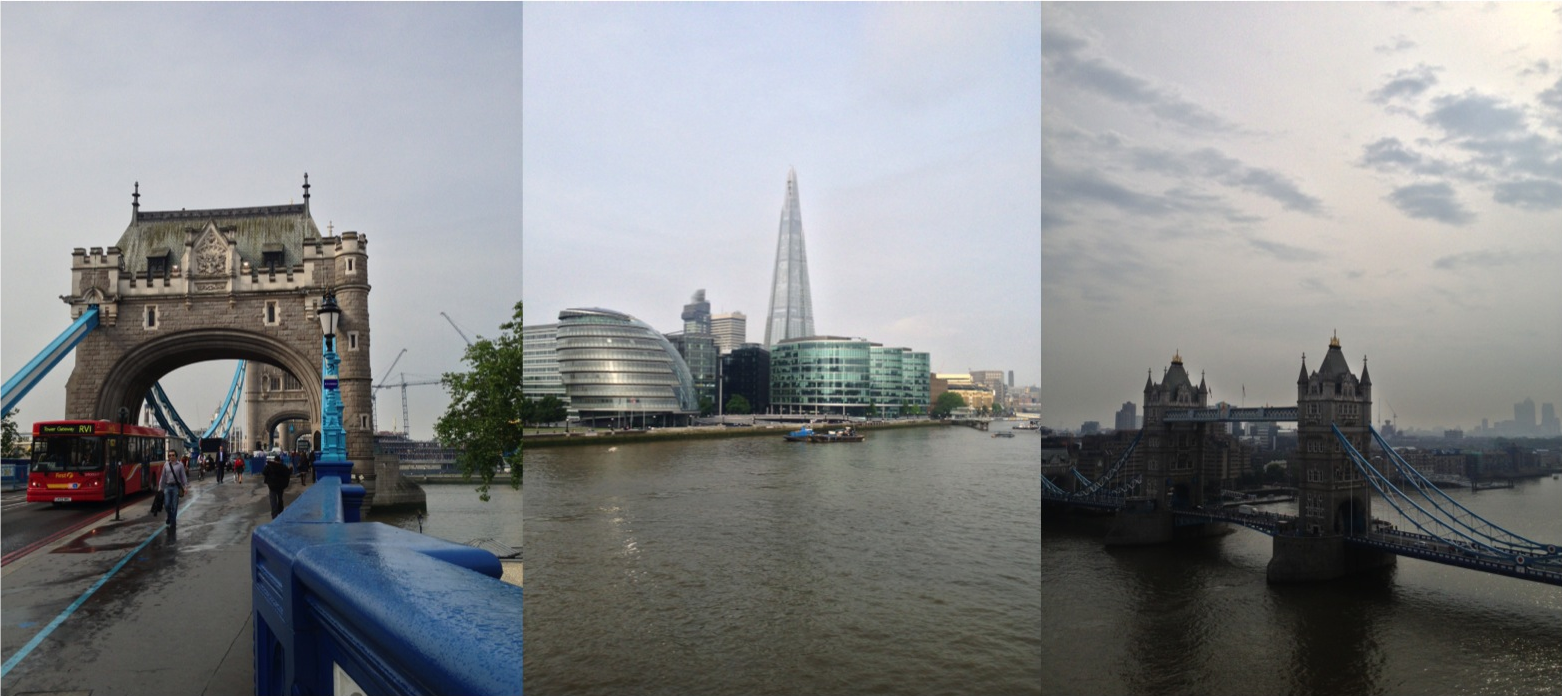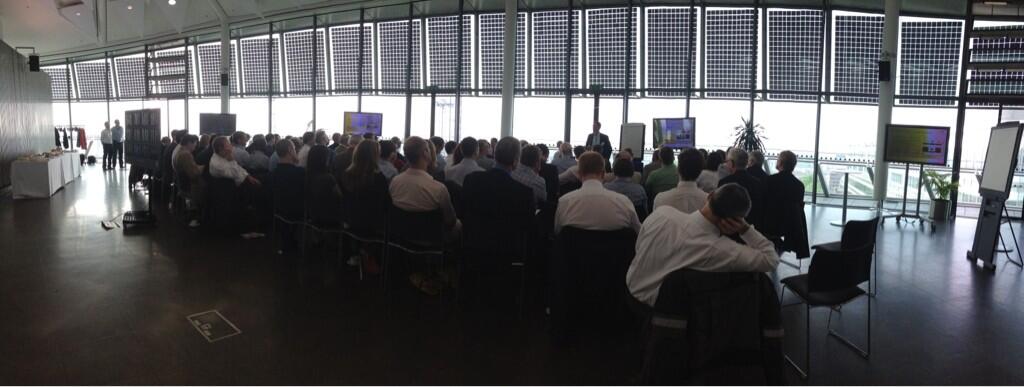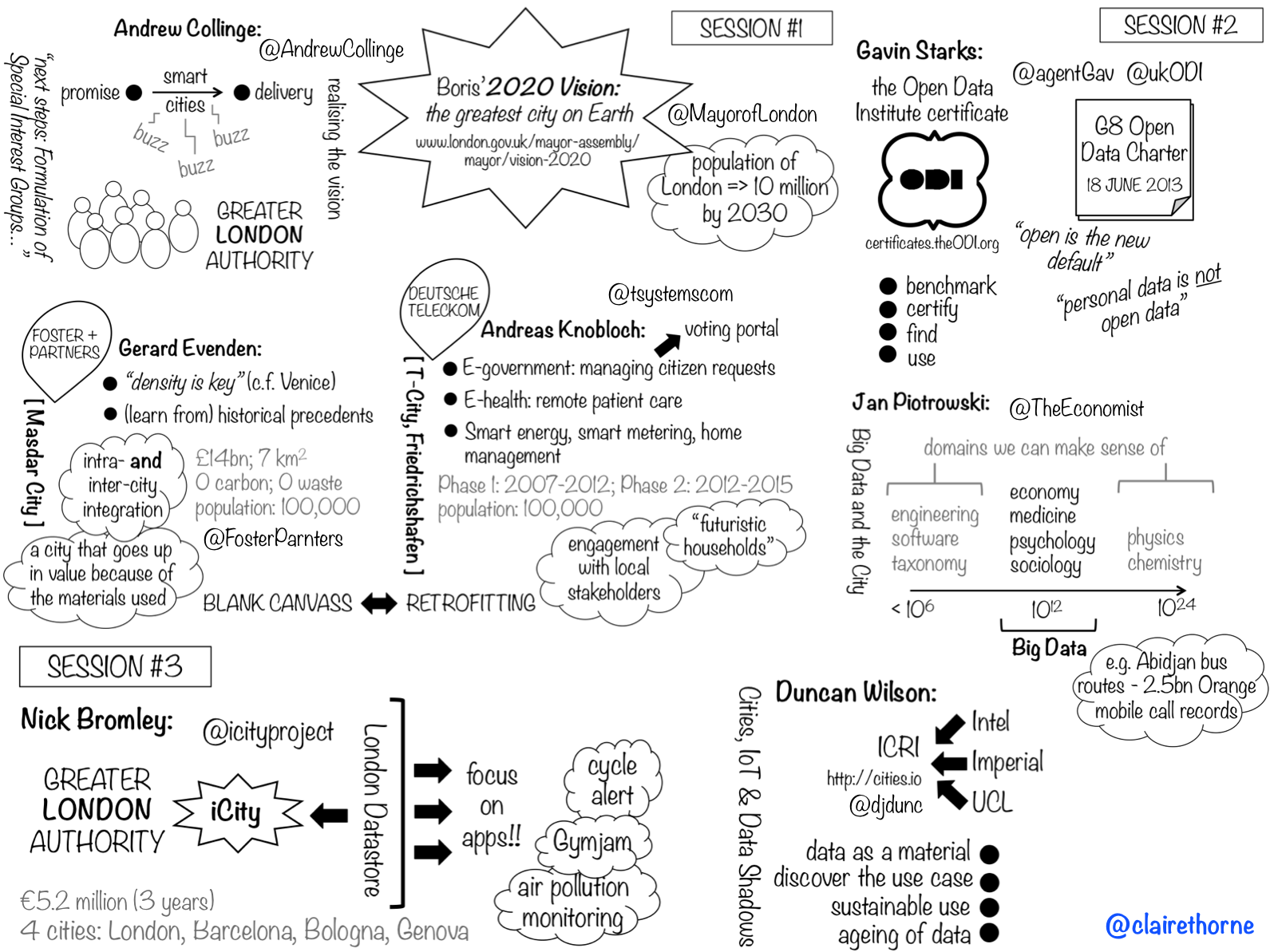Wednesday 19 June 2013
Hosted by the Greater London Authority (GLA)
Koen, David, Richard and I made our way to City Hall for the iCity Breakfast Briefing [agenda]…

The attendees – policy, local government, academic and private industry representatives spanning the architecture, construction, energy, health, transport, and technology sectors – were invited to hear about the European project’s recent progress, with the event promising to “combine structured presentation from leading speakers with interactive working and shared learning”.
Andrew Collinge (Assistant Director, Intelligence and Analysis, GLA) set the scene with a galvanising introduction. The speakers delivered informative talks, outlining examples of international ‘mega’ smart city projects (for inspiration/learning/duplication?) and the challenges and opportunities for London in the age of ‘open data’. These didn’t disappoint.

[action shot – courtesy of @djdunc]
Nick Bromley’s (Programme Manager, EU iCity Smart Cities, GLA) brief update on iCity outlined the short-term plans to unite the project with the London Datastore, to build a software development toolkit and an open apps store.
Here’s a summary [png] of the key points I took away from the morning:

There’s no doubt this event proved useful for making new connections, for catching up with the familiar faces – against all the rhetoric of user engagement and citizen-centric design, it seems ‘smart cities’ is fast becoming a (private) members club – and I learned a lot about the innovation in Masdar City right now.
However, there are a few things I left querying…
- We assembled, eagerly anticipating some big announcement on iCity’s progress, its plan for phase two, driving London’s transformation from a functioning, energetic cultural and economic hub, to a truly smart city paragon… And then came the confirmation: iCity will focus on ‘app creation’. Thud. Why?? App creation doesn’t demand any innovation in infrastructure – its already happening. Anyone can make use of existing/emerging data-streams through the London Datastore. This is ‘present’ not ‘future’. How does this fit with Boris’ 2020 Vision of London as “the greatest [smart] city on Earth”?
- With private sector organisations like Foster + Partners and Deustche Telekom already pioneering innovations in Masdar City and T-City respectively, what’s the role for public bodies (like the GLA) in the driving and delivery, in the ownership, adoption and governance, of smarter cities? There are many stakes in the ‘smart cities’ ground but few seem to be jointly placed there by private-public partnerships, and even less by citizen collectives.
- One agenda item read: “What type of ‘Smart City’ model best suits London?” I’m not clear how any existing smart city model will fit London – especially those created for ‘blank canvass’ sites like Masdar City (possibly the most far removed scenario from historic London and its retrofitting needs) – or indeed if it should. Forget a replicable/transferable/scalable model and the popular ‘one size fits all’ approach. Why not strive for a solution, so particular to London and its specific needs, that not only does it enable (not dictate), it is inclusive and sustainable (it all forms), it is simple and it engages, and above all, it is fit-for-(London)-purpose? Undoubtedly, from this, we’ll learn lessons and generate new products and business models along the way. And these in turn will (perhaps in a more piecemeal fashion) be applicable to other, emerging smarter cities, ticking that (all essential) commercial box.
- Unfortunately our chance to input into the discussion and shape iCity’s second phase, hinted at in the agenda (“interactive working and shared learning”), didn’t materialise. Given the high profile, captive audience with such a breadth of expertise, a view from the windows to inspire, and free-flowing coffee, this seemed like a misspent opportunity… A Q&A session for all to provide feedback on Boris’ vision, to debate both the socio-economic and technological benefits and risks, and to steer the iCity project going forwards? Now that would have been the smart thing to do.
Dear Claire,
Thank you for taking the time to give your feedback and comments about the event. There were several aims for the event, the first was to give the stakeholders who had signed up the opportunity to meet and interact; secondly the speakers and participants wanted to share knowledge and reach a consistent understanding of the topic; thirdly the team wanted a soft launch of the iCity Urban Platform so we can identify the ‘themes’ where the GLA needs to invest resources.
We share your disappointment, we would have liked more time to go through the challenges facing London and a full on panel discussion with a great set of speakers. The session has proven very useful, it achieved all our objectives in particular it enabled us to identify six key themes to take forward – these are shown in the LDS website iCity folder see http://data.london.gov.uk/ .
We will take your comments on-board as we plan the September briefing. Please keep in mind building a smarter London isn’t about just one individual, organisation or idea/innovation, its about all those and everyone has the chance to participate through iCity and by taking things up with the Smarter London Board. If you or anyone else wants to act as moderator for one of the themes active participation is very welcome.
Kind regards. Nick